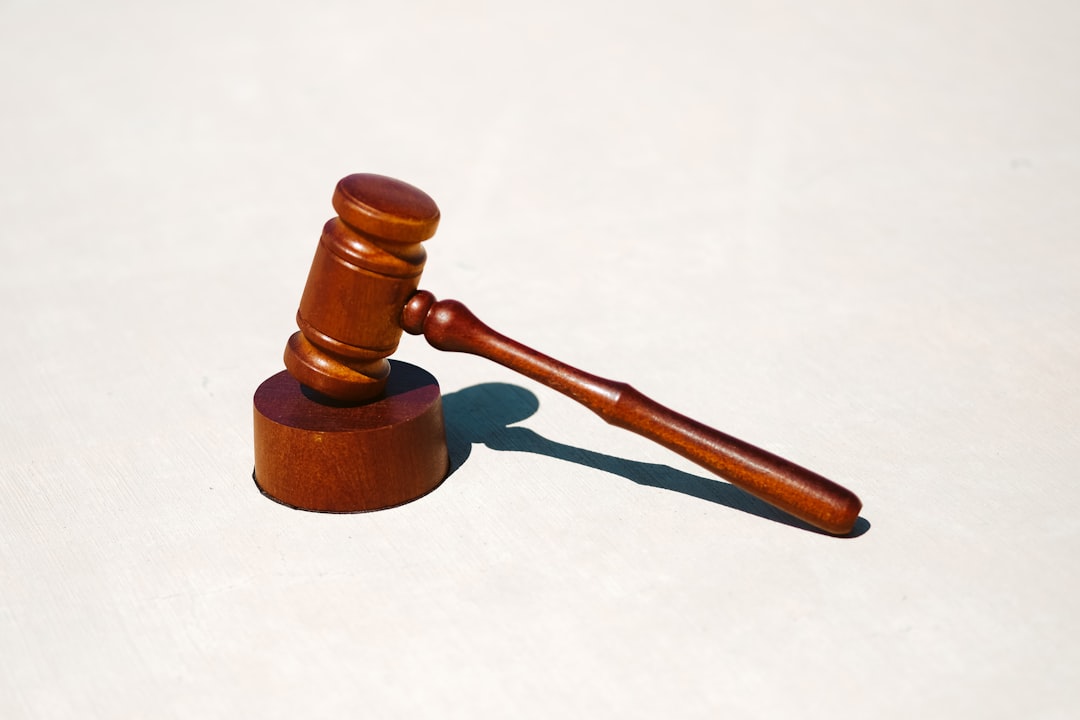The Telephone Consumer Protection Act (TCPA) safeguards Nebraska consumers from unwanted text messages (spam) by imposing strict rules on commercial communications, particularly automated dialing systems and promotional texts. Landmark TCPA cases have guided businesses to prioritize consent acquisition, opt-out options, and data management to avoid spam classifications and lawsuits. Engaging a lawyer for Spam Text Nebraska is crucial for navigating these regulations, ensuring compliance, maintaining positive customer relationships, and preventing financial losses in the competitive local market.
“In the digital age, text marketing has become a powerful tool for businesses in Nebraska, but it also presents legal challenges. The Telephone Consumer Protection Act (TCPA) is a landmark legislation that regulates telemarketing practices and has significantly influenced how companies approach text messaging in the state. This article delves into the critical intersection of TCPA compliance and Nebraska’s text marketing landscape, shedding light on key cases that have shaped spam text laws. We explore the act’s impact on business strategies and consumer protection, offering insights for businesses seeking to navigate this legal terrain effectively, including utilizing safe harbors to avoid legal pitfalls with a competent lawyer for Spam Text Nebraska.”
Understanding the TCPA and Its Relevance in Nebraska Text Marketing

The Telephone Consumer Protection Act (TCPA) is a federal law designed to protect consumers from unwanted telemarketing practices, including spam text messages. Its relevance in Nebraska text marketing cannot be overstated, given the state’s strict regulations on commercial communications. In Nebraska, as in many states, businesses engaging in text marketing must adhere to stringent guidelines to avoid being labeled as spam by recipients.
The TCPA restricts the use of automated dialing systems and requires explicit consent from consumers before sending any promotional text messages. A lawyer for Spam Text Nebraska can help businesses navigate these complex regulations, ensuring their marketing strategies comply with the law. By understanding and adhering to the TCPA’s provisions, companies can avoid costly legal repercussions and maintain positive relationships with their customers.
Key Landmark Cases Shaping Spam Text Laws in Nebraska

In Nebraska, as across the nation, the Telephone Consumer Protection Act (TCPA) has been instrumental in shaping the landscape of text marketing. Key landmark cases have played a pivotal role in defining what constitutes acceptable and unacceptable practices when sending spam texts. One notable case is Mishler v. At&T Mobile, which established guidelines for consent and opt-out mechanisms, ensuring consumers have control over receiving marketing messages. This decision underscored the importance of explicit consent, setting a precedent that influenced how businesses approach text marketing campaigns in Nebraska.
Another significant case, Spokeo, Inc. v. Robins, shed light on the TCPA’s requirement for accurate and meaningful disclosures in automated calls and texts. The court emphasized that companies must provide clear information about the purpose of the communication, the identity of the sender, and an opt-out mechanism. This ruling prompted Nebraska businesses to reevaluate their text marketing strategies, ensuring compliance with consumer protection laws. As a result, many legal experts recommend seeking counsel from a Spam Text Nebraska lawyer to navigate these complex regulations effectively.
The Impact of These Cases on Business Practices and Consumer Protection

The landmark TCPA cases have significantly reshaped business practices and consumer protection in Nebraska, particularly in the realm of text marketing. Following these rulings, companies and marketers have had to be more mindful of compliance with the law to avoid being labeled as spammers and facing potential lawsuits. This shift has led to a greater emphasis on obtaining explicit consent from recipients before sending promotional texts, ensuring clear opt-out mechanisms, and implementing robust data management practices.
As a result, Nebraska businesses are now more cautious about their marketing strategies, especially when it comes to text messages. Many have invested in refining their customer communication protocols, hiring specialized lawyers for spam text Nebraska to navigate the legal intricacies and ensure adherence to consumer protection regulations. This proactive approach not only safeguards businesses from financial losses but also fosters trust among consumers, creating a healthier and more transparent marketing environment.
Navigating Safe Harbors: What Businesses Should Do to Avoid Legal Troubles

Navigating Safe Harbors is a crucial step for businesses looking to avoid legal troubles in Nebraska’s text marketing landscape, especially with regards to the TCPA (Telecommunications Consumer Protection Act). To ensure compliance, companies should implement stringent opt-out mechanisms and obtain explicit consent from recipients. A lawyer specializing in spam text Nebraska can help draft clear and concise terms that meet these legal requirements.
Additionally, keeping detailed records of customer preferences and interactions is vital. Businesses should be able to demonstrate that they’ve taken reasonable steps to prevent unauthorized text messages and respect consumer choices. By adhering to these practices, companies can minimize the risk of facing TCPA-related lawsuits, enhancing their reputation and safeguarding their marketing efforts in Nebraska’s competitive market.






